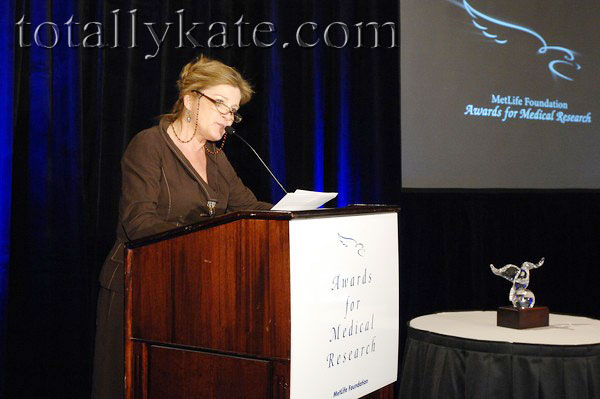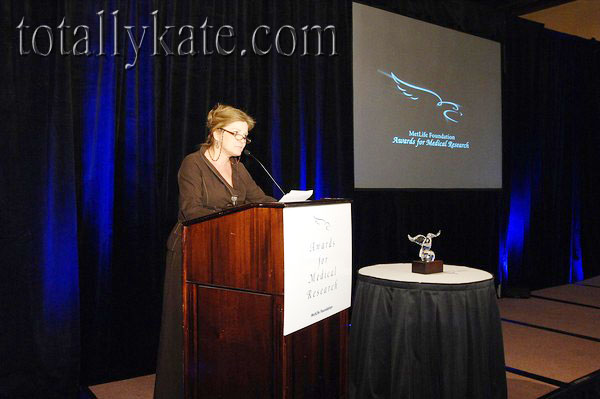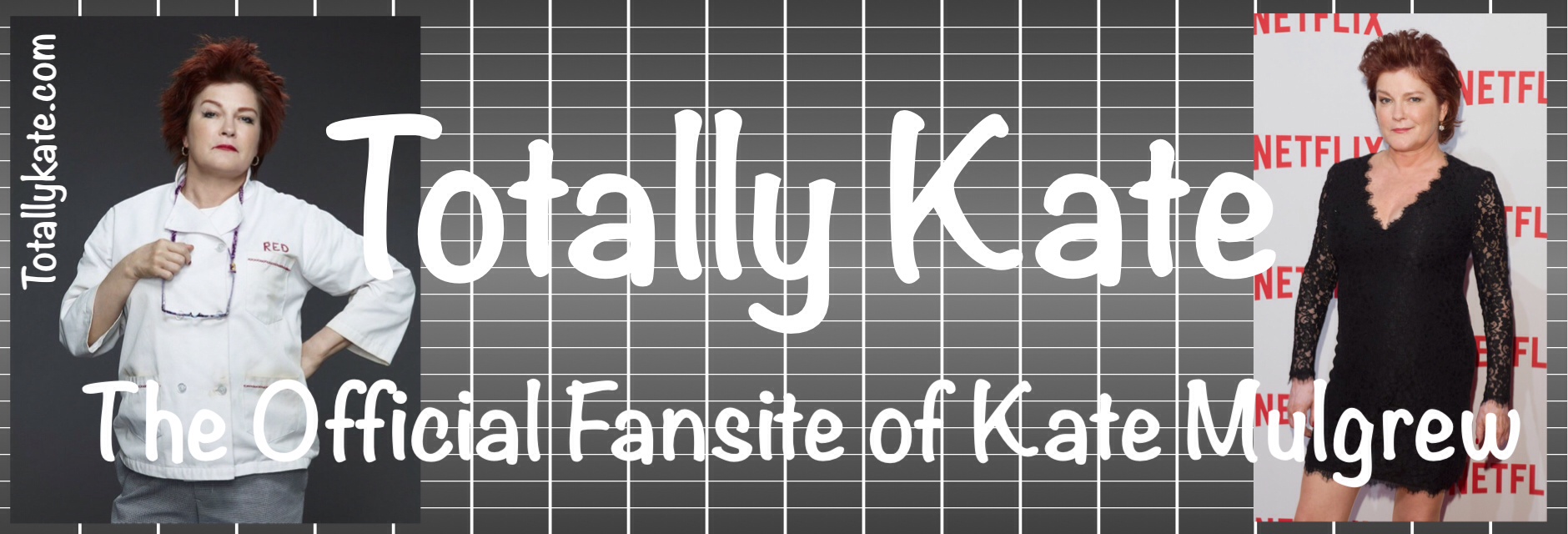Video of Speech
Keynote speech by Kate Mulgrew
MetLife Foundation Awards for Medical
Research in Alzheimer's Disease
FEB. 29, 2008 - Washington, D. C.
I’d like to first thank the MetLife Foundation
for their extraordinary generosity to Alzheimer’s research. Apparently,
someone very high up understands the urgency that this disease inspires,
and has both the compassion and the wherewithal to act on it. I would
also like to congratulate the scientists who are being honored today, not
only for their accomplishments, but for their essence: they are the
rara avis. Against all odds, they persevere, and in so doing, save
us all.
I’m at a stage in my life where, finally,
I can accept that almost all experience is bittersweet- and I can accept,
too, the inevitability of death. I think I will neither fear it nor
welcome it, as long as I can face it squarely and with some dignity.
After all, we have no say over our entrance into this world – the least
we can ask as human beings is to go clear-eyed and honest into that good
night.
My mother’s name was Joan but everyone
called her Jiki. The bookends of my mother’s life reveal the full
irony of her story. Her own mother died in childbirth stamping my
mother, before she could even speak, with a wild hunger and a deep and
solitary grief.
These currents ran through my mother all
her life and, though they defined her, they did not deter her from living
the life she chose. She learned the gifts of passion and friendship
early on, and when she stumbled upon my father, she recognized a kindred
spirit, and so they ran off together and had eight children in quick and
alarming succession. I was her second born, her first girl and, as
she would later say (to the surprise and occasional horror of anyone who
would listen):”Kitten was my first daughter so, of course, she was my favorite
– she was the mother I never had.”
She buried two of her eight children when
they were very young; Maggie, as a baby, and Tessie, of a brain tumor,
when she was fourteen. This last was a mortal blow and nearly cost
my mother her marriage and her sanity. She rallied, however, and
with Baruch Spinoza as her mentor and art as her creative furnace, she
became a celebrated painter, a maverick personality, a remarkable example
of grit and depth, wit and daring – we all loved her quite madly.
For her 70th birthday, I took my mother
on a cruise up The Aegean Sea. One night, looking at the Turkish
moon and drinking Irish whiskey, she wanted to talk about sadness.
She told me that the greatest sorrow of her life was that she had never
stopped searching for her mother and, whereas she knew this was emotionally
irrational, she could manage it as long as she was intellectually sound.
“My brain is the superior organ, and it gives me all my happiness,” she
said. “I can read, paint, play the piano, laugh at your father, I
can think and I can love. Want to know how special the brain is?”
she asked, pointing to the sky. “I can see the moon, but the moon
can’t see me.”
A month later, she was diagnosed with atypical
Alzheimer’s disease. She begged me to help her find a way out of
the nightmare but, of course, I didn’t. I couldn’t. You understand.
Instead, I just watched. I watched
as my father, furious with denial, slowly disintegrated, until one day
he crawled into his bed and died there, two weeks later. Cancer,
they said, cancer everywhere – in his lungs, in his chest, on his brainstem.
I watched as my siblings, once so funny
and charming and irreverent, grew confused and suspicious and, unable to
sever the bond they had always known with their mother, severed it with
one another, instead.
I just watched. Of course, I was
dutiful and vigilant. I learned how to change her diapers, how to
bathe her, how to put the spoon to her mouth. I did all of this with
a smile and studied, stupid expressions of affection.
One day, eight years after her diagnosis,
she simply refused the spoon – and shortly afterward, she refused the water.
But even then she held on as, one by one, all of her children embraced
her and bade her good-bye.
I was the last to kneel by her side and,
looking into her eyes, I gave her a walloping dose of morphine and, as
I cradled her head in my arms, I wept and begged her forgiveness – because
I had born witness to this final mortification. My mother died with
her eyes wide open – unseeing, senseless, and without a shred of dignity.
It looks like I may well be the genetic
heir to this same fate – that is, if I am truly my mother’s daughter –
and so I urge science, on behalf of my glorious and unexpected mother,
to work hard and demand much and strive passionately to control this disease,
so as to spare my own sons the ultimate mortification of having to bury
a mother whom they love deeply but who, herself, no longer knows or cares
what love is.
Speech reprinted in the Summer 2008 issue
of Preserving Your Memory magazine - download
pdf |


